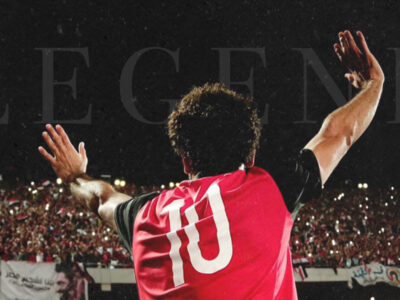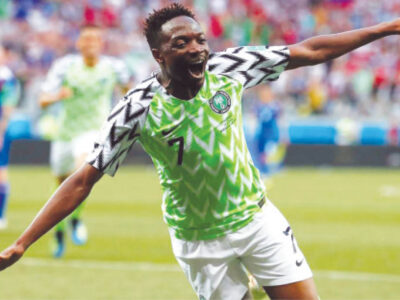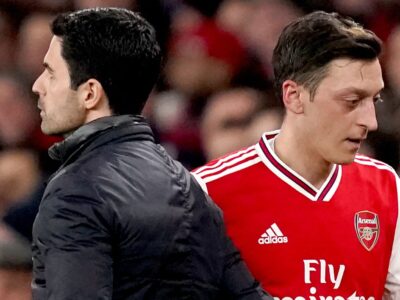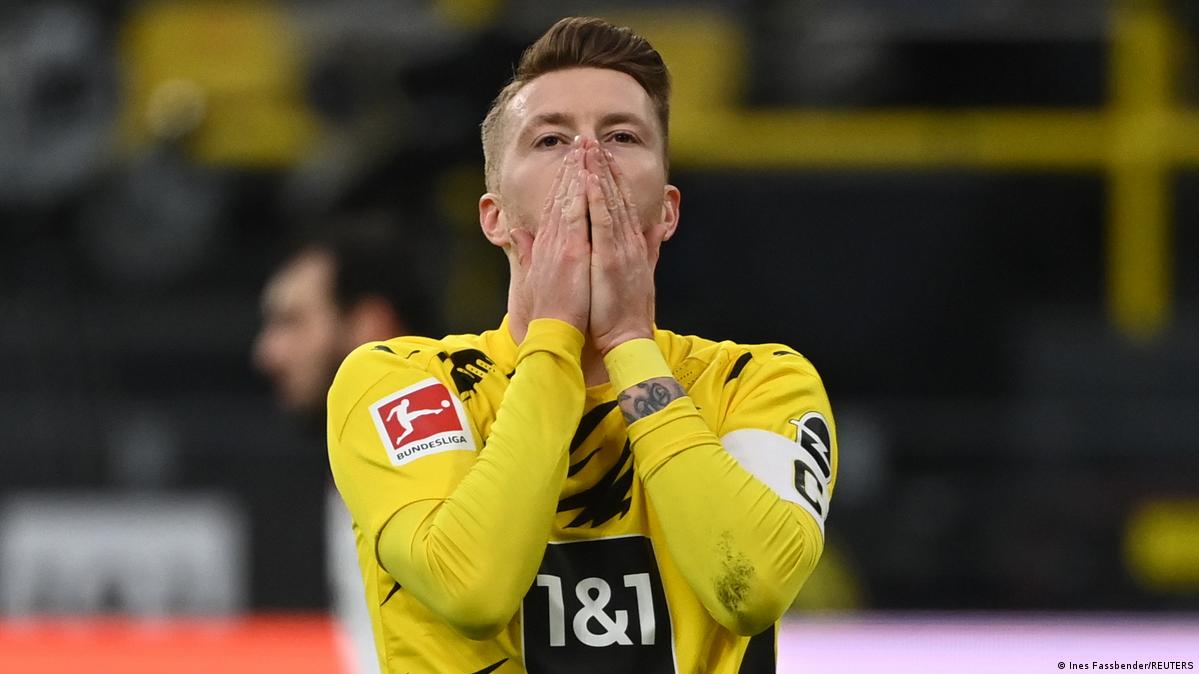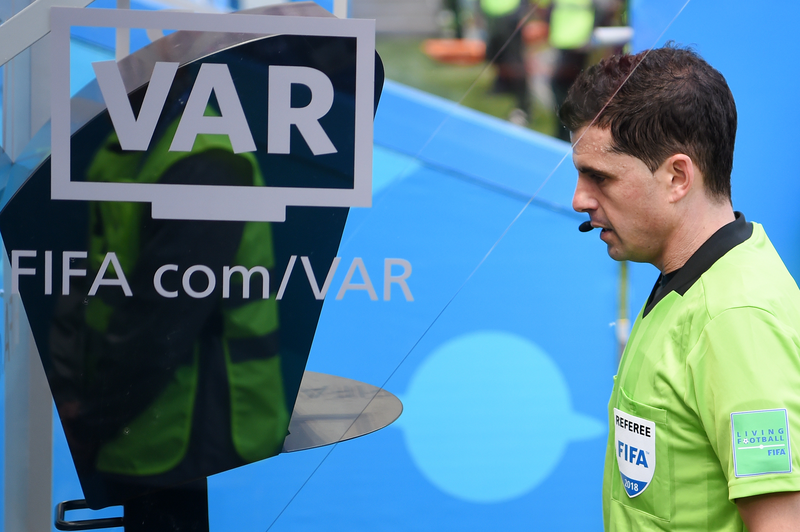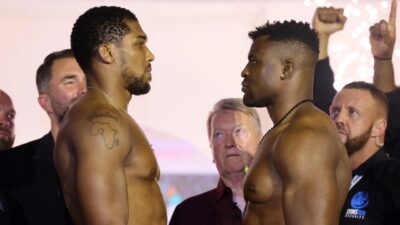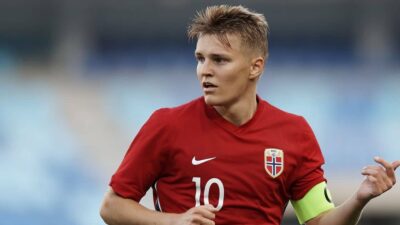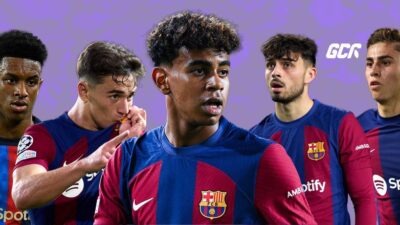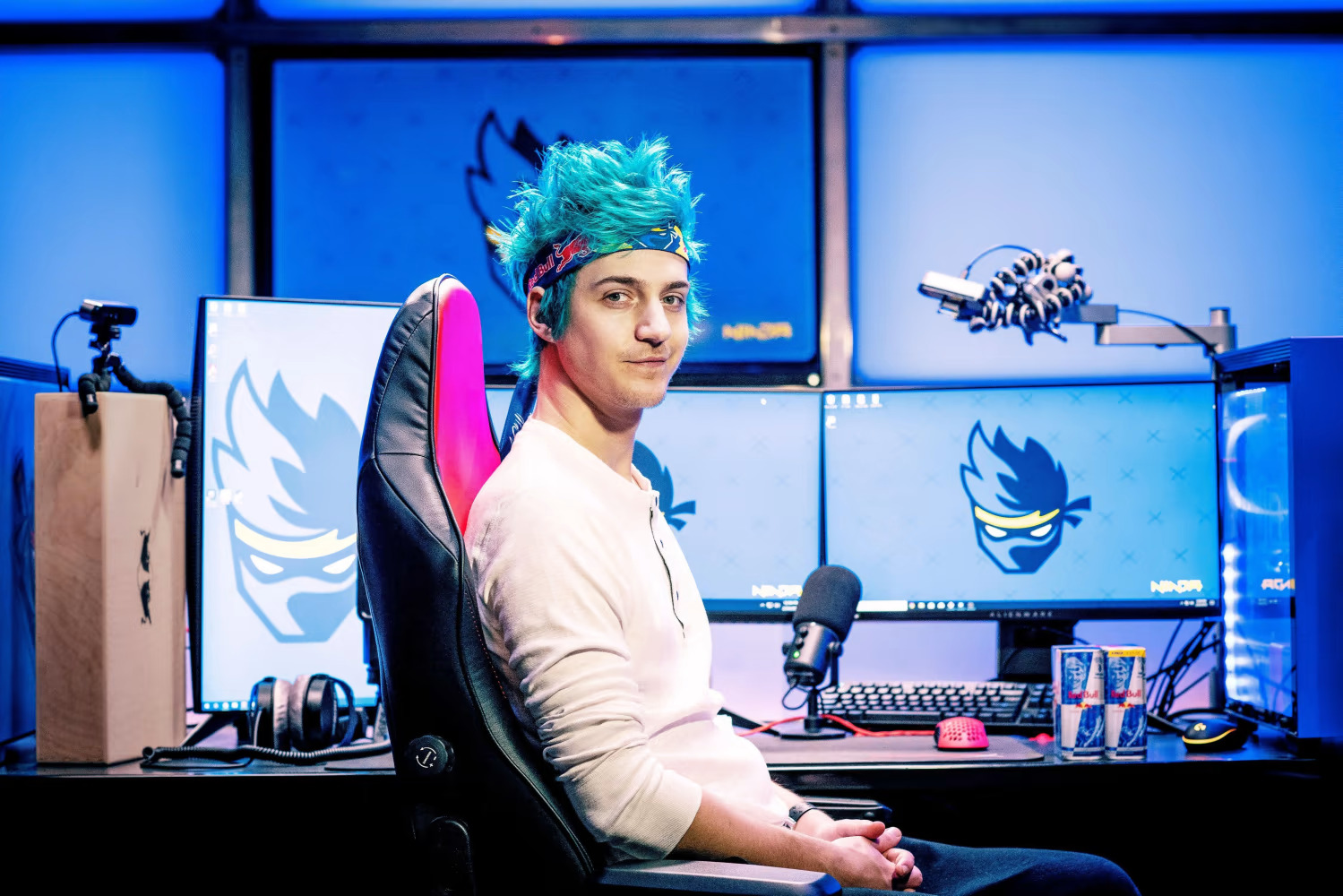If the beautiful game were a grand symphony, the name “Romelu Lukaku” would be that thunderous crescendo that divides opinions and sparks passionate debates long after the audience has left the concert hall.
With an impressive goal tally and at an age most players consider their prime, why has Lukaku become so hated?
To crack this code, let’s look beyond the statistics and accolades and peer into the nuances that make him revered and reviled.
This is the complicated reason why everybody hates Lukaku.
He lacks the finesse of other footballers
In a sport where fans crave the beauty of a well-orchestrated buildup or a sublime piece of skill, Lukaku’s game appears brutish in comparison. He lacks the flicks, feints, and dribbles that make football beautiful.
Think of Ronaldo Nazario, Pele, Dennis Bergkamp, and recent legends like Luis Suárez and Dimitar Berbatov. These men were artists on the field, painting masterpieces with each deft touch, dink, and shot.
Now, think about Lukaku. His horrible touch has earned him a place in the meme factory — he is “Lakaka” the Great.
The man has a left foot that could have ripped holes in the back of the net fifty years ago and a poacher’s instinct on par with the world’s best.
And if your team is a goal down and trying to get back into the game in the last fifteen minutes, you would prefer the Lukakus to the Berbatovs of the game. So, if you’re looking for someone to unlock defences with brute force, Romelu Lukaku is your man.
But, having played for some of the top teams on the planet, Lukaku is often in situations where his team is comfortably in the lead.
In those instances, purists can afford to long for the elegance and finesse that other footballing maestros offer.
And if Lukaku’s spells at Chelsea and Manchester United are anything to go by, these fans often don’t get their money’s worth.
For neutral fans living in the age of YouTube, where footballing moments are sliced and diced into digestible clips that go viral, Lukaku’s game often lacks the ‘wow’ factor.
His style is definitely an acquired taste and is simply not the stuff dreams are made of for those who revel in the artistry of the sport.
People call Lukaku a weight bully
Standing at an intimidating 6 feet 3 inches or 1.91 meters, ‘Big Rom,’ as many call him, is a nightmare for defenders throughout Europe.
And even when rising to stardom as a talented 21-year-old on the grand stage at Everton, he looked strong enough to bully veteran defenders in the English Premier League. And he often did.
A player with such a high ceiling, Lukaku kept performing at the highest level. But due to his non-evolving penchant for knocking defenders off the ball, he has gained a reputation for being a “weight bully.”
Critics argue that he uses this physicality to create an unfair advantage, a narrative that ignores the years of dedication and finesse he has poured into polishing his skills.
To see if the weight bully myth has any credence, turn your magnifying glass to his time at Inter Milan.
In the Serie A, widely regarded as one of the most tactical leagues, Lukaku excelled. Time and again, he outwitted defences with his intelligent runs, positioning, clinical finishing, and excellent linkup play with Lauturo Martinez in a 3-5-2 formation.
Some may argue that this improvement is due to the Inter staff getting him on the Bresaola diet to put him in better shape.
But shedding a couple of pounds does not automatically make one the kind of player to receive the ball by the halfway line, make a blistering run into the 18-yard-box, and beat a defender with a smooth step-over before quickly changing direction and slotting a shot into the corner of the net. This was Lukaku against Genoa, and he scored many more similar goals for the Nerazzurri.
With how quickly his game evolved, labeling Lukaku a weight bully is an oversimplification of a player with a multifaceted arsenal.
His (unjustified) overconfidence
The criticism doesn’t stop at Lukaku’s physicality. Cynics harp on about his level of overconfidence, claiming it borders on arrogance.
But it seems like unjustified hate or childish jealousy for anyone to claim a footballer who has scored 364 goals and supplied 85 doesn’t live up to his confidence level. Or does it?
Considering the fine details of his impressive goalscoring records, those opinions are not far-fetched. Looking at the quality of teams Lukaku’s goals have come against, a pattern emerges — “Big Rom” casts a small shadow when playing against elite teams.
Numbers don’t lie, but statistics can be presented to imply a different story from reality. For all the excitement about notching 364 goals, Lukaku’s statistics, when it matters, make for grim reading. The scales start to fall from any analyst’s eyes upon scrutinising his performances in the UEFA Champions League, where the best of the best compete.
Again, during his forgettable spells at Chelsea and Manchester United, Lukaku scored a combined 60 times in 162 appearances. While these aren’t the worst returns the beautiful game has ever seen, only 5 of those goals were against a top team in Europe’s top five leagues.
Considering these statistics while listening to his commentary about how he is on par with strikers like Benzema, Suarez, Lewandowski, and Harry Kane puts things into perspective. While Romelu Lukaku is unplayable on a good day, a deeper dive into the quality and significance of most of his goals may have diminished his achievements in the eyes of many.
He kisses the badge of the highest bidder
Lukaku’s career has been a journey through some of Europe’s most iconic football clubs. But he isn’t the first player to go through many high-profile transfers. So, it makes sense if casual football fans are unsure why accusations of mercenary-like behaviour often follow Big Rom.
In the summer of 2021, Lukaku returned to Chelsea, where he initially tasted the Premier League. His arrival at Stamford Bridge was heralded as a homecoming, a rekindling of the flame that had flickered briefly during his first spell.
He even kissed the Chelsea badge after picking up a through ball from Kovacic and hitting a low shot underneath Steer against Arsenal on his second debut.
This wouldn’t have been a big deal had he not already kissed the Inter Milan badge several times after scoring just months before he came to Chelsea for £97.5m.
Then consider that he had also kissed the West Bromwich Albion badge when he was on loan there from Chelsea and the Everton badge after transferring to the Toffees.

The significance of “kissing the badge,” which represents a passionate bond between a player and a club, seems not to hold water for Lukaku.
Whenever he pressed lips against a club’s crest, it carried more the scent of a financial transaction than a romantic reconnection. The eye-watering transfer fees, payment packages, and the relentless ambition of the clubs hinted that his actions were more about opportunity than sentiment.
However, while critics may argue that Lukaku kisses the badge of the highest bidder, his journey through football’s corridors also reflects the evolving dynamics within the beautiful game, where loyalty and ambition often dance on a fine line.
That Chelsea interview
Given that Lukaku was quick to kiss the Chelsea badge on his debut, nobody expected the interview he granted a few months later. In this candid conversation, he revealed a deep nostalgia and longing for his time at Inter Milan, a club he had left only a season earlier.
The revelation hit Chelsea fans like a wave of unexpected emotion. It was as if they were navigating the complex terrain of a relationship, much like those conversations with a partner who couldn’t help but reminisce about their former love. Only those who have sat through such discussions can understand the pain felt by the Blues faithful.

The conversation with Sky Italia peeled back the layers of his second stint at Stamford Bridge. Lukaku expressed his discontent with the situation at Chelsea, citing tactical choices made by manager Thomas Tuchel as the source of his frustration.
After the interview, Thomas Tuchel dropped him against Liverpool, and although he apologised in another interview, the rift between him and the club slowly turned into a ravine.
Eventually, Lukaku rejoined Inter Milan on loan for £8 million, just a season after they sold him to Chelsea for over twelve times that fee.
Flirting with Juve after declaring his love for Inter
If Lukaku’s affinity for Inter Milan was any more passionate, he could have passed as a poet. “Inter for me is everything,” were his own words, echoed by Inter CEO Beppe Marotta, who saw Lukaku as an integral part of the club’s future.
But, as football fans have learned, Lukaku’s devotion is complex.
In a shocking twist, journalists began peddling reports of Lukaku eyeing a move to Inter’s arch-rivals, Juventus. The Bianconeri reportedly matched Chelsea’s offer, and Lukaku abruptly cut off communication with Inter officials.
Invasione (anche senza Villar Perosa) #Juve pic.twitter.com/zpGsQcm7Ko
— Massimiliano Nerozzi (@MaxNerozzi) August 9, 2023
It was a U-turn that left Inter and its fans bewildered and furious. Inter fans took to social media to call him a traitor.
And I understand their frustration. How could he join their rivals after declaring his love for them? How could he even think of kissing the Juve badge after Inter fans adopted him as their wayward son?
Following an edgy phone call between Inter and Lukaku, the 2022-23 Champions League finalists withdrew from the race to re-sign their former star.
This decision left Juventus with a clear path to secure Lukaku’s services but also soured the relationship between Lukaku and the club that had stood by him through thick and thin.
Dumping Chelsea for Roma
Mauricio Pochettino’s arrival at Chelsea presented hope for Lukaku’s reconciliation with the club. But the player never returned for pre-season training, encouraging Poch and the club to take a stern stance against his reintegration into the team.
Ironically, Chelsea fans loved the decision not to include him in the new season’s plans.
While positive on the field, Lukaku’s proposed move to Juventus has the makings of a public relations debacle. It all went sideways. Protests by Bianconeri fans and concerns raised by stakeholders reflect the dust storm surrounding the striker’s decision.
And finally, ending up with Roma, who was never in the picture at the start, puts a cork in the story of Lukaku flirting with Juve after declaring his love for Inter. It also proves that loyalty in football is a fragile commodity.
Lukaku goes missing when it matters
Apart from being part of the notorious FC Hollywood era at Manchester United, missing sitters and having subpar performances against the best teams in the world have become recurring traits in Lukaku’s career.
In the 2020 Europa League Final, Lukaku scored an own goal that handed the trophy to Sevilla. But it doesn’t stop there.
During the UCL game against Shakhtar Donetsk in 2020, Lukaku inadvertently blocked his own teammate’s (Alexis Sanchez) header. This incident effectively sealed Inter’s fate, ensuring that they couldn’t make it out of the group.
In the 2022 World Cup clash against Croatia, Romelu Lukaku etched a chapter of missed opportunities into his career narrative. The stage was set, and the expectations were high, but the result was a heart-wrenching exit for Belgium’s ‘Golden Generation’ in the group stage.
The Champions League final game against Manchester City in the 2022-23 season was another prime example of Lukaku’s meme-worthy misses.
After coming on as a substitute with about 30 minutes to go, Simeone Inzaghi instructed him to give Inter more physical presence in the attacking zone. This would have been a managerial masterclass if only Lukaku hadn’t missed the chance of the night, directing a free header straight at Ederson with the goal wide open to either side of him.
To make things worse, Dimarco had a chance to equalise after Edin Dzeko’s header came off the crossbar, but Lukaku was in his way, unintentionally serving as Pep Guardiola’s 13th man as the ball bounced off his body, much to the agony of every Italian watching.
In all fairness, the Belgian striker was just in the wrong place at the wrong time—the story of his career.
Is Lukaku that bad?
Romelu Lukaku’s career trajectory points to the dynamism and commercialisation of the beautiful game, where loyalty, ambitions, and the unpredictability of the sport collide. He is definitely not Marco Reus; more like Nicolas Anelka.
But even with the twists and turns of his journey, is Lukaku truly deserving of the negative spotlight that often accompanies his name?
Lukaku’s reputation for changing clubs and expressing devotion only to backtrack has raised questions about his loyalty. It doesn’t help that his achievements could do with a bit of levelling up to match his confidence. And that doesn’t include his image as a badge-kissing nomad.
Yet, a detailed view reveals a far more complex narrative. For every fan that brands Lukaku as a weight bully, many more agree his physical presence on the pitch is undeniable.
And on the issue of his overconfidence, it may be what keeps him going strong, especially in the unforgiving world of top-level football. It’s a thin line separating the bold from the brilliant, and Lukaku often sees himself toeing it.
So, is Lukaku that bad? No, he isn’t. He mirrors the folds within football — a sport that pits zeal and loyalty against financial realities. He’s a reminder that fans should embrace the nuances of the stories that the tabloids don’t tell and appreciate the intricacies players like him weave into the narrative.
In the end, one-dimensional labels or statistics against big teams don’t define Romelu Lukaku’s career. His story reminds us that football, like life, is a captivating mosaic of personalities, moments, and emotions that keep us in love with the game, season after season.
Who wrote this?
Precious is a lover of football, a peddler of banter, the master of all sports, and the practitioner of none. He's spent over 15 years discussing football in pubs and schoolyards.











